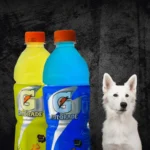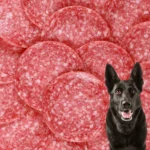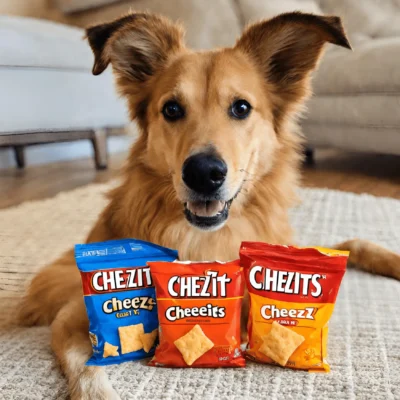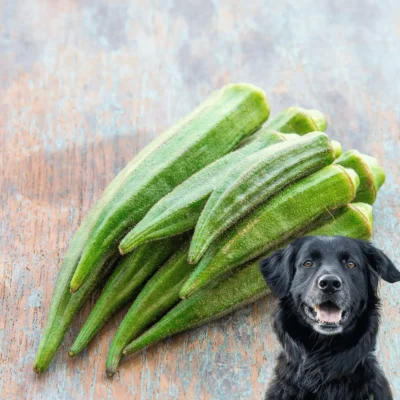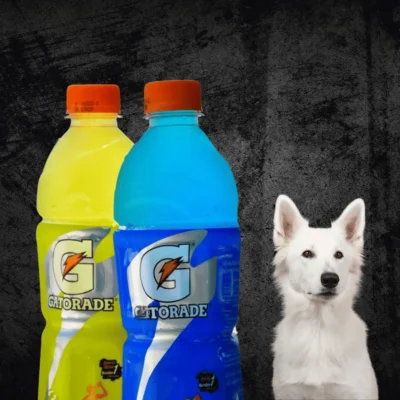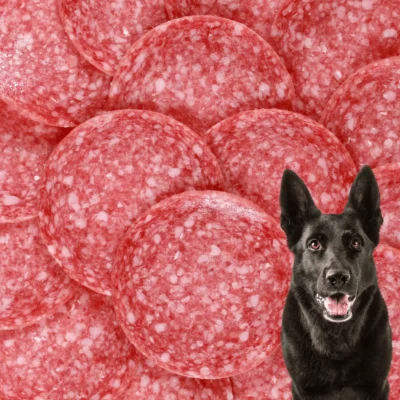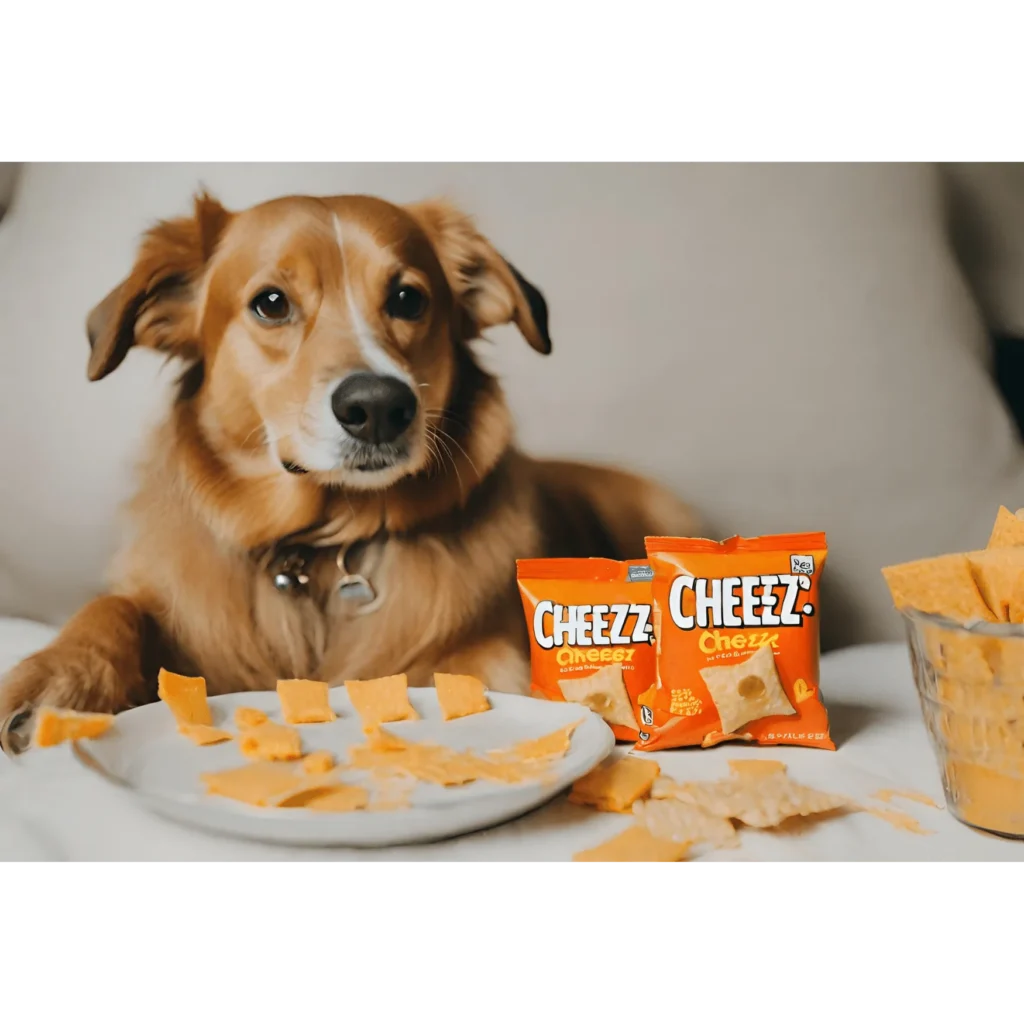
Many people enjoy eating Cheez-Its, considering them a popular snack. However, can dogs eat Cheez-Its? The answer is not a simple yes or no. On one hand, dogs can eat Cheez-Its occasionally, but on the other hand, they are high in sodium, which is not conducive to good canine health.
In this article, we will discuss everything about Cheez-Its for dogs. Our goal is to provide comprehensive guidance to concerned pet owners regarding the safety of Cheez-Its for their furry friends. We will delve into the potential risks and benefits associated with feeding Cheez-Its and explore safe methods for offering them to your dog, should you choose to do so.
Additionally, we will explore some homemade snacks that are optimal for your dog’s health. After reading this blog post, you will have a comprehensive understanding of the benefits and risks of Cheez-Its for your dog. With this information, you will be better equipped to make the best decision for your furry friend, determining whether or not to include Cheez-Its in their diet.
What Are Cheez-Its, and What Are the Ingredients?
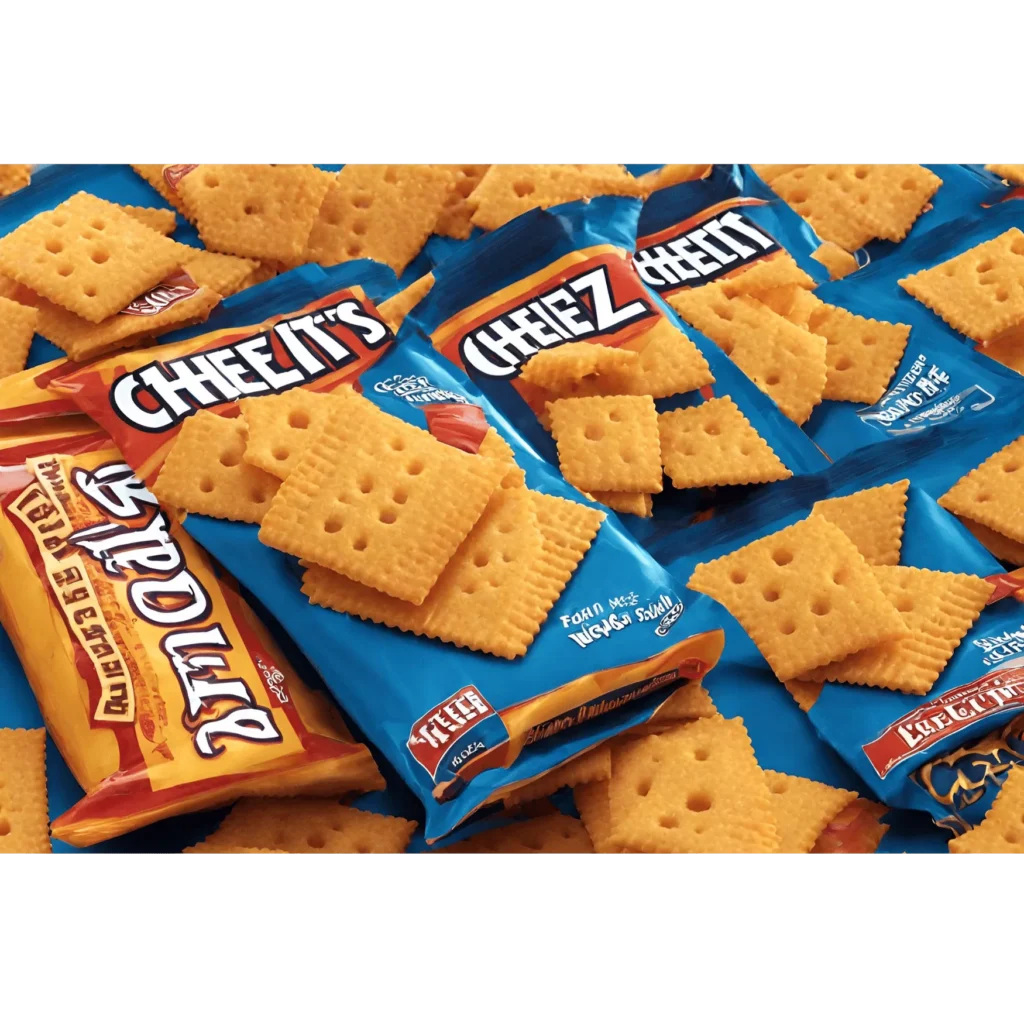
Cheez-Its are a brand of cheese crackers that are popular snacks among humans. They are famous for the cheesy flavor they have and also for their crunchy texture. They are 24 by 24-millimeter rectangular shape crackers that are made of a variety of ingredients, including:
- Enriched flour (wheat flour, niacin, reduced iron, vitamin B1 [thiamin mononitrate], vitamin B2 [riboflavin], folic acid)
- Vegetable oil (high oleic soybean, soybean, palm, and/or canola with TBHQ for freshness)
- Cheese made with skim milk (skim milk, whey protein, salt, cheese cultures, enzymes, annatto extract color)
- Sal
- Paprika
- Yeast
- Paprika extract color
- Soy lecithin
Cheez-Its also has other flavors, including original white cheddar and double cheddar as some options.
Can Dogs Eat Cheez-Its?
Technically, dogs can eat Cheez-Its, but it is important to remember that they are not a healthy snack. Dogs should only have Cheez-Its on an occasional basis and in moderation, provided they do not have any dairy or wheat allergies, as these ingredients may be harmful to dogs. It is crucial to be aware that while sharing Cheez-Its with your dog, the snack itself does not offer any nutritional benefits and should not replace a balanced and appropriate diet.
One potentially positive aspect is that sharing treats may strengthen the bond between you and your dog. Always prioritize your dog’s well-being and consult with a veterinarian for advice on suitable snacks for your furry friend.
Potential Risks of Feeding Cheez-Its to a Dog:

While a dog can have Cheez-Its in small quantities, there are potential risks associated with feeding Cheez-Its to a dog, particularly if consumed in large quantities.
Here are the potential risks of feeding them:
High-Fat Content:
Almost 4 grams of fat are present in every 28-gram serving of Cheez-Its. If a dog consumes a high amount of fat, it can lead to weight gain and obesity, which may cause various health issues, including:
- Joint Problems: Excess weight strains joints and can lead to arthritis and other joint conditions in the body.
- Pancreatitis: A high-fat diet can cause inflammation of the pancreas, which is a serious health condition for dogs.
- Diabetes mellitus: It is a hormonal disorder caused by obesity and an excess of fat in the body.
High Sodium Content:
A high amount of sodium is present in Cheez-Its, with approximately 240 milligrams in a 28-gram serving. This is not suitable for dogs, as they are more sensitive to sodium than humans. Excessive intake can lead to various issues, including:
- Dehydration: High amounts of sodium can draw water out of cells, leading to dehydration and electrolyte imbalance in dogs.
- Sodium Poisoning: Excessive amounts of sodium can also cause sodium poisoning, a life-threatening condition in dogs. Symptoms include vomiting, diarrhea, tremors, and seizures.
- Hypertension: An elevated sodium intake can lead to high blood pressure, potentially causing various heart issues such as straining the heart and increasing the risk of cardiovascular disease.
Processed Ingredients:

Cheez-Its are made from various processed ingredients that collectively do not provide the necessary nutritional value for dogs. Additionally, these ingredients may cause digestive issues for them. Here is a list of these ingredients:
- Enriched flour: A flour with some small nutritional benefits. Some of the nutrients are iron and B vitamins. They can contribute to obesity in dogs.
- Vegetable oil: Vegetable oil contains unhealthy fats which can cause weight gain and other health issues in dogs.
- Salt: Salt is also present in Cheez-Its in high amounts. If a dog takes salt in excessive amounts, it can lead your dog to dehydration, sodium poisoning, and hypertension.
- Paprika extract color: This is an artificial color agent. Some dogs may be allergic to it.
- Soy lecithin: This is a processed emulsifier that can upset the digestive system of dogs.
Individual Reactions:
Cheez-Its can cause various issues in dogs beyond the general health concerns we discussed earlier. Some of these reactions include:
- Lactose intolerance: Dogs that have trouble tolerating lactose lack the enzyme needed to digest it, the sugar in milk and dairy products. If a dog is unable to tolerate lactose and eats Cheez-Its, it can lead to various issues like diarrhea, vomiting, and gas.
- Wheat intolerance: Some dogs are allergic to wheat, so they are allergic to Cheez-Its too, as they are made from wheat flour. Symptoms of wheat allergy include skin irritation, itching, and gastrointestinal upset.
- Individual sensitivities: Cheez-Its contain various ingredients such as paprika or soy lecithin. Some dogs may be allergic to these specific ingredients, leading to digestive issues or allergic reactions.
Are There Any Benefits for a Dog to Eat Cheez-Its?
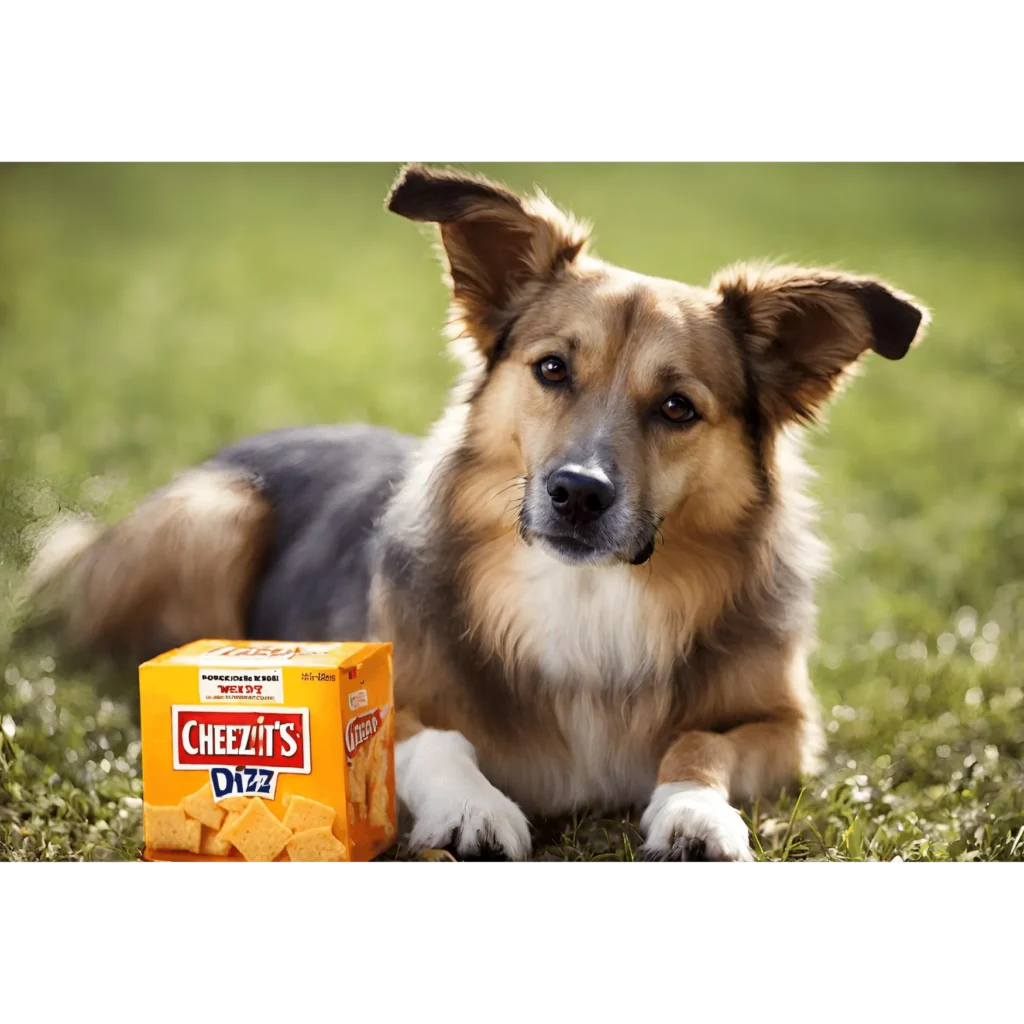
Cheez-Its are not a healthy option for dogs, but there are a few potential benefits to feeding them in moderation:
- Occasional Treat: Cheez-Its can be a tasty treat for dogs, strengthening the bond as you share a snack. However, it’s crucial to feed them in moderation during special occasions to avoid the potential risks mentioned previously.
- Training Aid: Cheez-Its can serve as a training aid for dogs. Using this flavorful snack as a reward for good behavior can be an effective motivator during training sessions.
- Source of Protein: Cheez-Its contain a small amount of protein, which is an essential nutrient for a dog’s body. However, it’s important to note that this protein alone does not make Cheez-Its a valuable source of nutrition.
- Source of Calcium: Similar to protein, Cheez-Its also contains a small amount of calcium, essential for healthy bones. Nonetheless, the calcium content is not significant enough to consider them a valuable source of nutrition.
How to Give Your Dog Cheez-Its Safely (If You Choose to Do So)

If you decide to feed Cheez-Its to your dog, follow these tips to minimize the potential risks involved in feeding them. Here are some tips:
1. Limit the Amount
It is important to limit the intake of Cheez-Its to avoid excessive calorie intake and potential health risks. Generally, 1-2 crackers are sufficient for most dogs.
2. Offer as an Occasional Treat
Cheez-Its are not suitable as a regular diet for dogs, as their risks outweigh their benefits. You should only feed them to your dog occasionally. Some good points for feeding Cheez-Its to dogs are that you can use them as training aids or treat them when they exhibit good behavior.
3. Monitor for Signs of Upset
Monitor your dog closely after feeding them Cheez-Its for any signs of digestive issues, such as vomiting, diarrhea, or bloating. If you observe any signs of illness in your dog, stop feeding them immediately and consult with your veterinarian.
4. Consider Your Dog’s Individual Needs
Before feeding them Cheez-Its, consider your dog’s age, breed, and any other health conditions they may have. It will help you identify whether or not to feed Cheez-Its to your dog. Some dogs are sensitive to dairy, wheat, or other ingredients in Cheez-Its.
5. Provide Plenty of Fresh Water
A high amount of sodium is present in Cheez-Its, so your dog requires more water to stay hydrated. Make sure to provide plenty of water after feeding Cheez-Its to your dog to prevent issues like dehydration and electrolyte imbalances.
6. Seek Veterinary Guidance
If you have any other concerns related to feeding Cheez-Its to your dog, it is better to consult with your veterinarian. They can guide you according to your dog’s health and needs.
Some Homemade Healthy Snacks for Dogs:
Here are some homemade healthy snacks for your dog that you can feed them instead of feeding Cheez-Its:

1. Frozen Pumpkin Treats:
Pumpkin is a healthy treat for your dog, containing a high amount of fiber, vitamins, and minerals. It’s an excellent ingredient for homemade dog treats. A simple recipe involves pureeing cooked pumpkin and adding a dash of cinnamon for flavor. Freeze the mixture in ice cube trays or popsicle molds, creating a delightful and nutritious treat your dog will love.
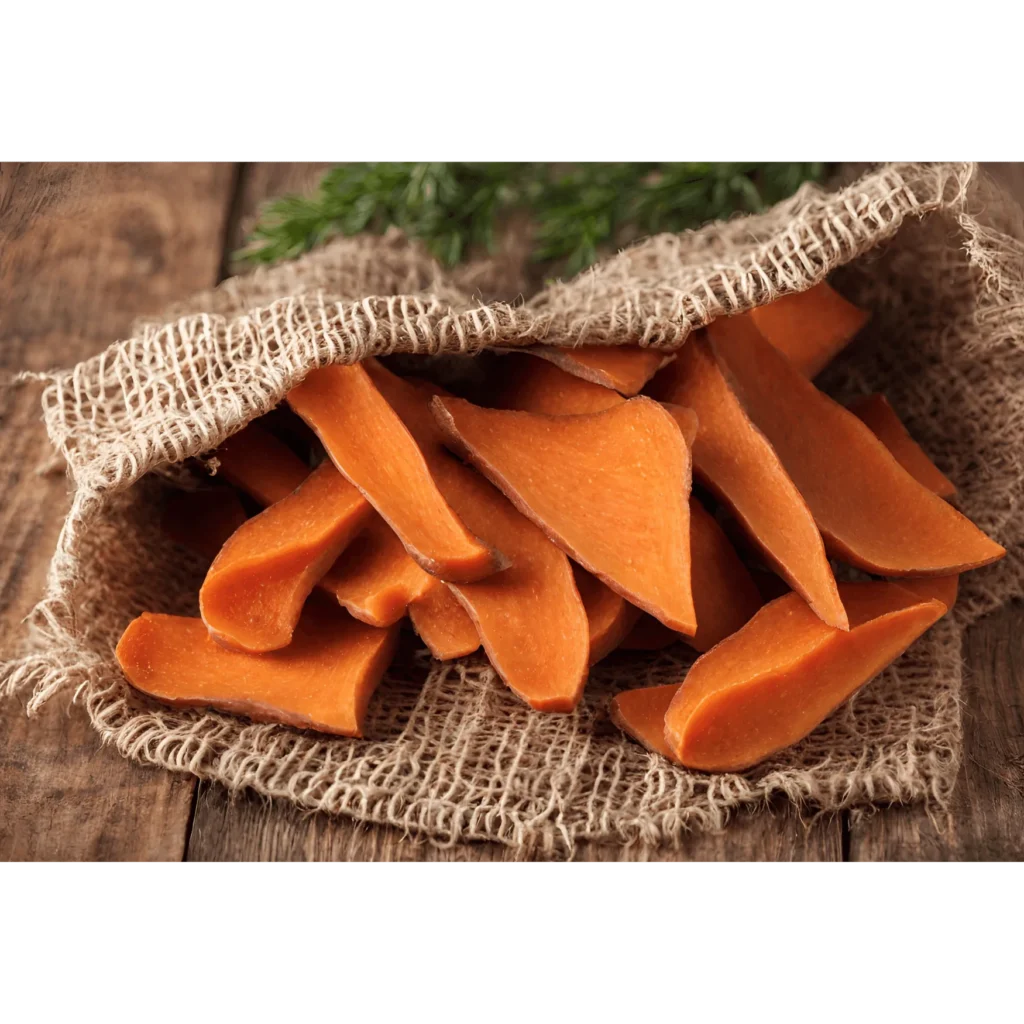
2. Sweet Potato Chews:
Sweet potatoes are also a good option for a healthy homemade treat for your furry friend. They are high in fiber, vitamins, and antioxidants. To make a tasty treat at home, dice sweet potatoes, bake them until they are soft, and then mash them into bite-sized chunks. If you want to add extra flavor, sprinkle some dried herbs, such as rosemary or thyme, for an additional burst of taste.

3. Apple Chips:
Apple chips can be a healthy treat for dogs. They contain a good amount of fiber, vitamins, and potassium, which are beneficial for dog health. To make them, slice apples thinly. Don’t forget to remove the seeds and core, then bake them at a low temperature until they become crispy. After making them, let them cool completely before giving them to your pup.
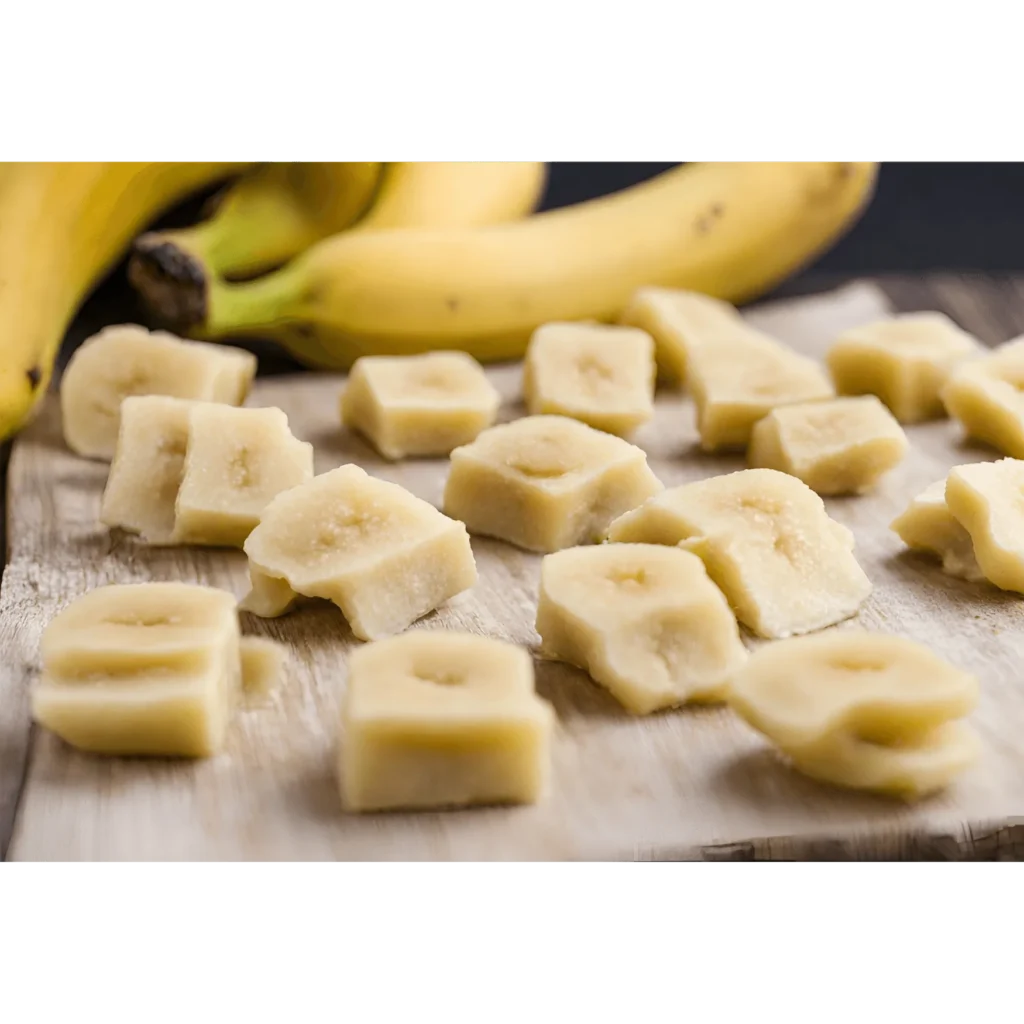
4. Banana Bites:
Bananas are healthy for dogs as they contain a good amount of potassium and fiber, which are essential for their well-being. To make banana bites, you can start by mashing ripe bananas and forming them into small-sized balls, or you can spread the mashed bananas on a baking sheet. Lastly, bake them at a low temperature until they become chewy.

5. Carrot Sticks:
Carrot sticks are also a healthy homemade snack for dogs. They are low in calories and high in fiber, making them a nutritious treat for dogs. You can make them by washing and peeling the carrots, then cutting them into small sticks. If your dog loves snacks full of flavor, you can add a dash of peanut butter for extra enjoyment.
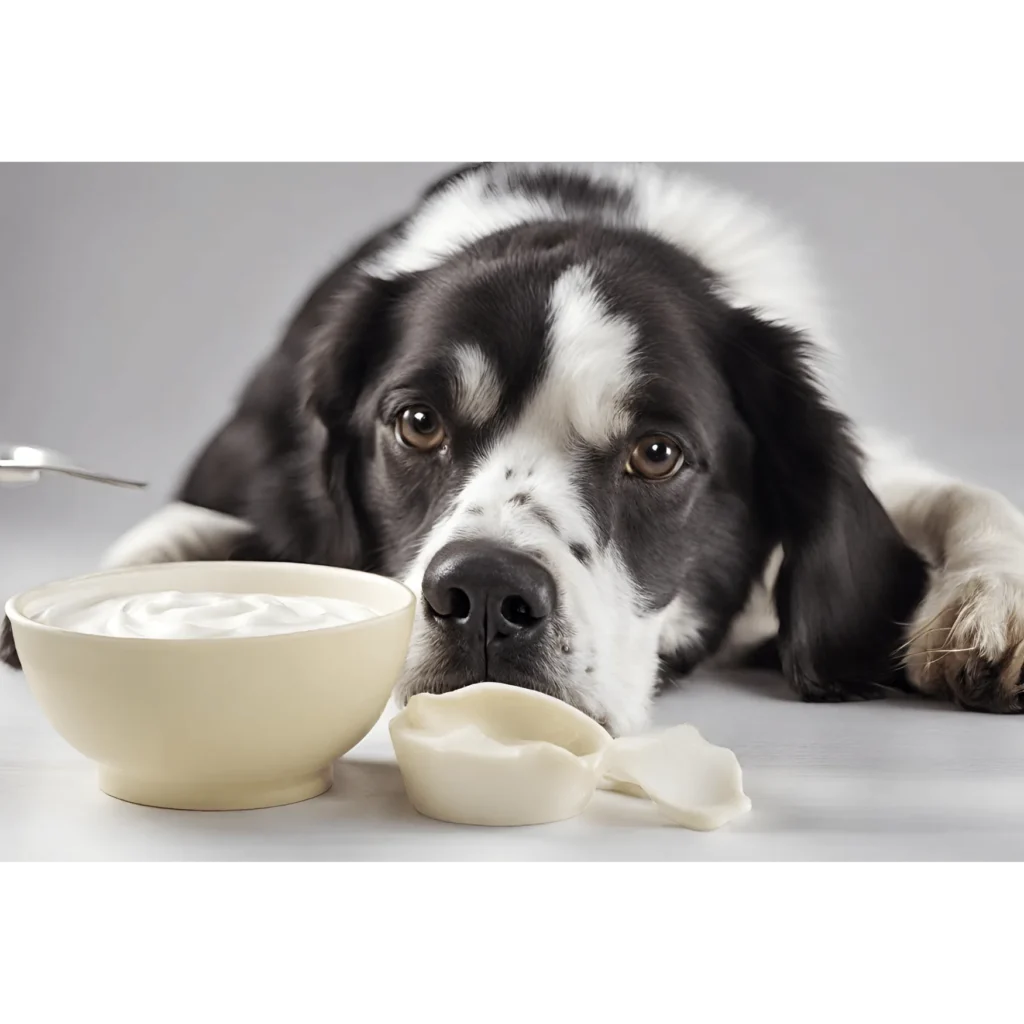
6. Yogurt Parfaits:
Plain yogurt is good for dogs as it contains a good amount of protein and calcium. You can try feeding plain yogurt, chopped fruits, and a sprinkle of granola in a small cup or jar to your dog. Your dog may love it as it is a refreshing and nutritious treat for your furry friend.
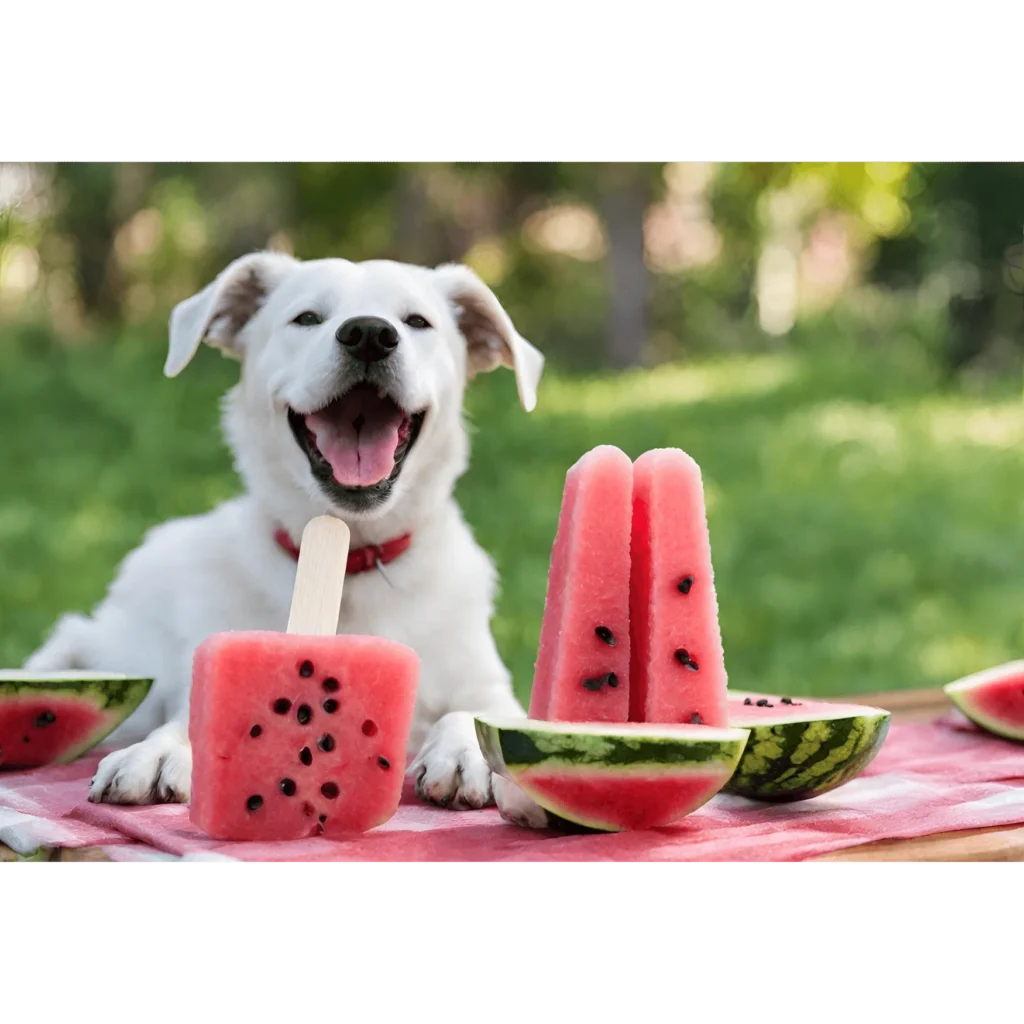
7. Watermelon Popsicles:
A watermelon is also a good option, especially in summer. It keeps the dog’s body hydrated and refreshed. You can try pureeing seedless watermelon, freezing the mixture in ice cube trays, and then feeding them to your dog as a healthy and cool treat.
Remember, it is always best to consult with your veterinarian before feeding any new snacks to your dog. Also, when you feed them any food for the first time, closely monitor them for any signs of illness or allergic reactions. Additionally, avoid snacks that are too large or hard, as they can pose a choking hazard.
Conclusion:
In conclusion, you should only feed Cheez-Its to your dog on an occasional basis and in small amounts as a treat. They can be used as a training aid or as a reward for positive behavior. However, it’s crucial to note that the potential risks associated with Cheez-Its, including high fat, sodium, and processed ingredients, outweigh the minimal benefits they may provide.
Instead of Cheez-Its, consider feeding your dog other healthy homemade snacks. Some good homemade options include frozen pumpkin treats, sweet potato chews, apple chips, banana bites, carrot sticks, yogurt parfaits, or watermelon popsicles. These alternatives are not only healthy for dogs, providing essential nutrients, but they also pose lower potential health risks compared to snacks like Cheez-Its.
Remember, it is always best to consult with your veterinarian before introducing any new snacks to your dog. Additionally, when you feed them any food for the first time, closely monitor them for any signs of illness or allergic reactions. Also, avoid snacks that are too large or hard, as they can pose a choking hazard.
FAQ’s about Dog’s Eating Avocado:
1. How many Cheez-Its can dogs eat?
The number of Cheez-Its a dog can eat depends on several factors, such as age, size, and activity level. However, within the normal range, it is advisable to feed them only 1-2 crackers per day. Cheez-Its are high in fat, sodium, and processed ingredients, which are not suitable for maintaining good dog health.
2. Can dogs have white cheddar Cheez-Its?
Yes, dogs can have cheddar Cheez-Its. However, there are some things to remember before feeding them. Cheddar Cheez-Its are high in fat, sodium, and processed ingredients, so it is important to feed them in moderation to avoid any serious health issues.
3. What happens if a dog eats Cheez-Its?
Most dogs usually remain fine after eating Cheez-Its if they only eat a few. However, if a dog consumes a large quantity, they may experience issues such as:
- Vomiting
- Diarrhea
- Bloating
- Dehydration
- Sodium poisoning
Remember, Cheez-Its in small amounts usually do not harm dogs’ health, but it is important to monitor them closely after giving them Cheez-Its. If you notice any change in your dog’s behavior, contact your veterinarian.


